| If you can't view the email, please click here. |
|
|
|
From the Desk of the Editor
Süreya Martha Köprülü
“The conflict in Syria, entering its seventh year, has spawned one of the most protracted and complex humanitarian crises of modern times. Grappling with the overwhelming influx of people has highlighted key gaps in international governance architecture. It has also exacerbated preexisting political fault lines and accelerated the widespread rise of populist/nationalist movements. Values that have long been the anchor of the West’s liberal order – tolerance and openness – have given way to exclusionary politics, xenophobia, and the continued weakening of regional and international institutions. Brexit in the UK, the rise of the far right across Europe, and the election of Donald Trump in the US are the latest iterations of these growing trends. The seismic shifts occurring across the West will undoubtedly continue to reverberate, with key elections and referendums in Europe coming up in 2017.”
“In TPQ’s Fall 2016 issue, our authors take up the complex nature of the Syrian refugee crisis, in particular its impact on Turkey’s demographic, political, and social landscape. Examining the approaches of the Turkish state, NGOs, and international actors, our authors emphasize the importance of shifting from an emergency response to finding durable solutions, implementing integration policies, particularly in education and employment, ensuring the resilience of the Turkey-EU agreement, and fostering dialogue between refugees and the host community.”
|
|
Turkey and the Syrian Refugee Crisis: An Example for Humanity
Mevlüt Çavuşoğlu 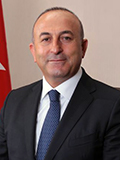
“One should keep in mind that the generosity Turkey has shown towards Syrians and those in need of international protection is also reflected in the policies it initiates in its region in the field of immigration. The Turkey-EU Agreement of 18 March, constitutes a good example in this regard. Turkey took the initiative in drafting the 18 March Agreement, which owes its success to our tremendous efforts in the Aegean Sea, not only through saving human lives and eliminating smuggling activities, but also in welcoming new migrants from the Aegean islands without any discrimination.”
“Refugee integration is an important aspect of migration management. Well-managed migration has benefits not only for migrants themselves but also for countries of origin and destination. Therefore, our Syrian brothers residing in Turkey have an invaluable chance to enrich the human capital in Turkey.”
“Geographical proximity should not be used as an excuse for making the countries neighboring the regions of conflict solely responsible. The international community needs to share the responsibility and the burden equitably.”
|
|
|
CHP’S Policy Recommendations for the Refugee Question in Turkey
Veli Ağbaba
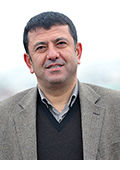
“The services provided to Syrian refugees in our country are inadequate. Refugee children are unable to continue their education, comprehensive health services are inaccessible, and basic human rights are not guaranteed since the minimum requirements such as shelter are not secured. Services for registration, legal support, translation, education, and health must be provided more efficiently.”
“Turkey has experienced a crisis that it cannot resolve on its own. Therefore, our foreign policy must be restructured to take migration into account. Our diplomatic relations must be used for the creation and operation of multi-stakeholder channels of negotiation.”
“We (CHP) believe that accepting refugees as political subjects with rights would contribute to the solution of problems related to the refugee crisis. In this regard, the integration of refugees in their host societies is vital for the development of a pluralist system.”
|
|
|
Keeping the Aegean Agreement Afloat
Gerald Knaus

“To rescue the EU-Turkey Agreement, the European Commission (EC) and Turkey have to be serious about addressing concerns raised by the Greek asylum service and the UNHCR with regards to Turkey being a safe third country for those who should be returned from Greece. These apprehensions can be addressed. It is wrong to assert that Turkey is obviously a safe third country already, as the EC did in early May. It is equally wrong to argue that Turkey cannot become a safe third country in the short-term.”
“Some Turkish liberals argue that the EU should give up on the refugee agreement and instead focus on promoting human rights in Turkey. In fact, within another year, there might be no important government left in the EU that cares about promoting human rights anywhere on the European periphery, including Turkey, as has already happened in the US.”
|
|
|
Promoting Decent Work for Syrians: The ILO Experience
Numan Özcan

“The ILO Turkey Office carries out several activities, with the aim to contribute to the promotion of decent employment and equal treatment for Syrian refugees. In this regard, the ILO delivered vocational, technical, skills development, and entrepreneurship courses to Syrian and local communities to improve the employability of both.”
“The other crucial point that we need to emphasize is the involvement of the private sector for job creation and decent working conditions for Syrian refugees. Investment and economic growth which will help create decent jobs for both Syrians and locals should play a key role in response to the Syrian refugee crisis in Turkey.”
|
|
|
The Fall of Aleppo Calls for New Approaches to the Refugee Crisis
Metin Çorabatır
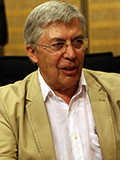
“The essential problem of the Turkish asylum system is related to its inability to make a paradigmatic change to lift the geographical limitation it maintains to the 1951 Refugee Convention. As long as the geographical limitation is upheld, integration becomes an impossible option in legal terms.”
“Turkey has definitely been trying to fulfill its humanitarian obligations. Billions of US dollars have been spent for Syrians since their arrival in 2011. Free health care, the right to access education, and limited work permit opportunities are just some of the Turkish state’s achievements. So far 11,000 Syrians have received a work permit.”
|
|
|
Syrian Refugees in Turkey: Towards Integration Policies
Ahmet İçduygu & Doğuş Şimşek
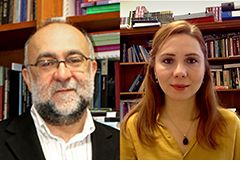
“The shift in migration patterns towards more immigration coupled with the accession negotiations with the EU have resulted in new legislative efforts since 2000 in Turkey’s immigration laws and regulations. Accordingly, regulations for labor market access for foreigners and refugees are gradually improving. The Law on Work Permits for Foreigners (LWPF), passed in 2003, and later the LFIP, passed in 2013, dealt with the regulation of foreigners’ status and work permits but were not enough to provide work permits for many migrants.”
“The necessity of a public-funded housing and shelter mechanism arises from the fact that the majority of refugees live outside the camps. The most important reason why Syrians prefer to live outside the camps is that they do not want to restrict their freedom. However, living outside the camps has its own difficulties, including finding affordable housing.”
|
|
|
Syrian Refugees’ Status in the Jordanian Labor Market
Maha Kattaa
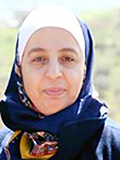
“The Jordan Compact plan proposes improving access to formal employment opportunities for Syrian refugees within the context of economic growth, which in turn creates more jobs that can benefit both Jordanians and Syrians. The aim of the compact was to change the macro-level conditions for job availability in the country through radical improvements in trade and investment, in order to boost employment and accommodate the participation of Syrians in the labor market.”
“With support from the ILO and others through advocacy and rising awareness, as well as partnerships with sector organizations, the number of work permits being issued for Syrian refugees sharply increased to almost 33,500 by early December 2016.”
|
|
|
A Greek Perspective of the European Refugee Crisis
George Mavrommatis

“Under increasing EU pressure, the Greek government built accommodation facilities to house and cater to the needs of these refugee populations. In a sense, with the closure of the Western Balkan route, the “European refugee crisis” came to an end only to be substituted by a number of national refugee crises – one of them being the Greek refugee crisis.”
“Through both the passing of time and political developments, the port of Piraeus quickly transformed from a temporary ‘pause’ along the Western Balkan route into an informal refugee camp, which housed thousands of people. In its heyday, the port of Piraeus sheltered and catered to the needs of approximately 5,000-6,000 individuals.”
|
|
|
Syrian Child Workers in Turkey
Sezen Yalçın

“Due to the prevailing poverty among Syrians in Turkey primarily arising from displacement, unemployment, and lack of adequate social protection mechanisms, refugees are increasingly relying on child labor. The pressure to contribute to the family income results in children taking up heavy and dangerous works in sectors varying from services to seasonal migratory agriculture, and from small industry to street sales.”
“Hayata Destek/Support to Life (STL), a national humanitarian aid organization based in Turkey, carried out research in the cities of Hatay and Şanlıurfa, two border cities hosting the highest number of Syrians. Data from surveys, focus groups, and in depth interviews have shown that 95 percent of Syrian breadwinners work as unskilled laborers in temporary jobs, which constitutes one of the fundamental reasons children engage in income-generating activities.”
|
|
|
Perceptions between Syrian Refugees and Their Host Community
Selin Yıldız Nielsen

“Turkish citizens were united around the cause of their Syrian neighbors at the onset of the crisis, and although the Turkish government provided some resources and assistance to their “guests,” citizens also pitched in. Interviews among several members of the community showed that there was a huge amount of compassion observed from the local population in the first years of the crisis.”
“In light of the likely long-term settlement of Syrian refugees in Turkey, multi-layered, comprehensive policymaking is required in order to achieve sustainable resolutions. This must start with the host country’s acceptance that Syrians constitute a vibrant society, and just like any society they want to thrive and be valuable members of the community. State discourse should be a reflection of this approach, which will in turn facilitate the peaceful co-existence of the refugee and host communities.”
|
|
|
Saving Syria’s Lost Generation through Education
Yasser M. Dallal
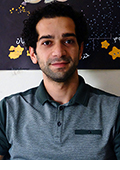
“Syrian refugees have the right to enroll in and attend Turkish state schools on the condition that they are registered under the temporary protection regulation. The official number of Syrian refugee children that attend Turkish state schools is 325,000. There are various reasons for this low number. The most significant is that only a small portion of the refugees speak Turkish well enough to receive an education.”
“Whether they attend state schools or temporary education schools, or cannot receive education, providing psychological support and counseling services to Syrian children in their native tongue is currently one of the biggest needs, given the significant trauma these children were subjected to. Activities and programs must be planned to make it easier for refugee children to adapt to the society they live in, prevent discrimination and ostracism towards them, and overcome the possible prejudices between Syrian and Turkish students and their families.”
|
|
|
Syrians in Turkey: A Grassroots Perspective
Shannon Kay

“I have been working as co-director of Small Projects Istanbul (SPI)’s Community Education Center in Fatih, Istanbul. Given the immense scale of the conflict, the community service work we are doing is a tiny drop in a stormy ocean – but for those who dwell in the neighborhood and frequent the center, this small project is making all the difference. Each week, approximately 250 individuals pass through our doors to participate in language courses, handicraft workshops, computer classes, and social support activities, or simply to have lunch and socialize with their peers.”
“The direction that Turkish public sentiment takes on this issue is clearly influenced by the broader political context of the country. We are all painfully aware of what this currently means. The evolution of societal relations will surely be impacted by the development and implementation of government legislation towards Syrian nationals, as well as the way that these policies are being justified in the media and enforced through state institutions.”
|
|
|
Ziad’s Story of Finding Home
Elie Gardner

“Many Syrians who live in Turkey do not register, believing it could affect their chances of applying for asylum elsewhere one day. As an unregistered Syrian living in Turkey, Ziad knew his rights were limited. He thought about going to the police, but then assumed his bosses had connections with them. ‘As a Syrian in Turkey, if you are not working you cannot live,’ Ziad says. ‘At the hotel I didn’t have to worry about that. I didn’t have to worry about staying in the street or going hungry.’”
“Immigration is not something new or simple. In the past year I have spent time with hundreds of displaced individuals in Europe – Afghans, Syrians, Iraqis, Somalis, Eritreans, Sudanese, and Iranians. While they do share a common desire for safety, their needs, skills, and dreams could not be more diverse. Many of them have simple and clever ideas for improving their situations that I have never heard being discussed in foreign policy circles. Well-informed policy is made when the population it affects is involved, and refugees and asylum seekers need more seats at the table.”
|
|
|
Reducing the Risk of Militarization in Turkey’s Refugee Camps
Nathalie Versavel

“The militarization of refugee camps is a pressing issue that is not granted enough international attention. By definition, refugee camps are intended to be temporary settlements which provide refuge to those fleeing violence. However, there have been a number of cases in which armed elements have indeed infiltrated refugee camps, and thus endangered their civilian nature.”
“On a local scale, in light of ongoing integration challenges, competition over housing and employment and ethnic divisions within Turkish society could become exacerbated. If not addressed adequately, this could result in increased violence and crime. Regionally, the militarization of these urban refugees could be a source of further instability in the region, and could reinforce the anti-migrant, right-wing rhetoric in Europe.”
|
|
|
The Syrian Conflict and Turkey’s Humanitarian Response
Laçin Idil Öztığ
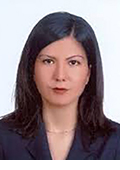
"Since the advent of the Syrian crisis, Turkey has followed an open door policy. Nevertheless, after a spillover of violence into its south eastern region, Turkey strengthened and intermittently closed some parts of its border with Syria, closing its border crossings with the Syrian towns of Afrin, Kobane, and Jazira after they were taken by Kurdish YPG forces in 2012."
"Turkish President Recep Tayyip Erdoğan has consistently accused the international community of turning a blind eye to the violence committed in Syria. On May 2016, he stated that Turkey spent 10 billion dollars for Syrian refugees and complained that the international community did not contribute enough to improve conditions for refugees. He suggested that the UN Security Council should play a leading role in the prevention of attacks on civilians and the creation of a safe zone in Syria."
|
|
|
Interested in contributing an op-ed to TPQ's blog?
For guidelines click here. |
|
|
The Premium Corporate Sponsor of this Issue
 |
|
|
Thanks to Our Media Partner |
 |
|
|
 |
Phone: +90 212 621 4442 - +90 212 621 9258 Fax: +90 212 531 8718 info@turkishpolicy.com
Click to unsubscribe |
|
|
